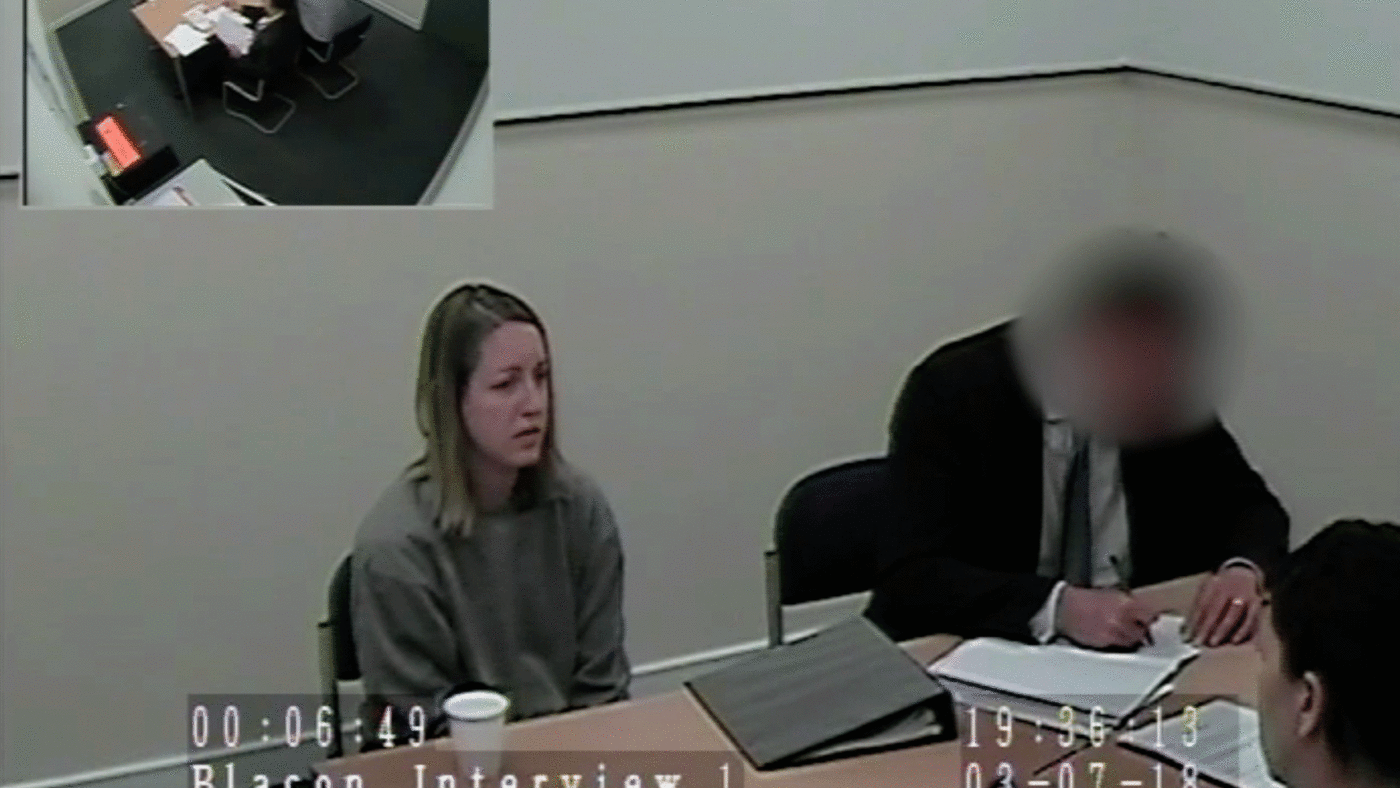The serial child killer Lucy Letby refused to face the judge and the parents of her victims when sentence was passed earlier today. Her cowardice was predictable. Her ability to manipulate the system to evade public judgment is inexcusable.
Letby is a convicted murderer. As such she has crossed the line from defendant – innocent until proven guilty beyond a reasonable doubt – to offender. Her status as a perpetrator ought to move the balance of rights in favour of the families she has irreparably harmed. But a muddle over law and procedure has left the judge unable to compel her to attend her own sentencing. Having shown no remorse for her crimes, Letby’s final selfish act was to deny the parents of those poor lost children the chance to tell her to her face what she has done to them.
It is extraordinary that the current law is insufficient both to give victims closure and to force perpetrators to confront the enormity of their actions.
There are many principled arguments against physically compelling a convicted offender to be in court. None of them are sufficient, in my view, to maintain the status quo. As someone who has used, authorised and supervised physical force, I know that the difficulty of carrying an unwilling offender into a court and keeping them there should not easily be dismissed. Nor should the very real possibility that some perpetrators would use their presence in court to re-traumatise victims and violate the dignity of a solemn occasion. Moreover, although requiring and in some cases restraining convicted offenders during sentencing is commonplace in other jurisdictions, like the US, our threadbare, rickety and contracted-out Crown Courts would present a logistical challenge. I’ve even heard some pious commentators opine that using force is ‘uncivilised’. To which the only answer can be that it’s far less civilised to deliberately murder seven tiny babies you’re supposed to be caring for. In this case two wrongs do make a right.
Force is used in prison all day and every day to make prisoners comply with lawful instructions. That force is tightly governed by principles of proportionality and necessity. Prison officers are skilled at deescalating threatened violence. Sentencing events do not materialise with no notice. It ought to be possible with proper planning to make sure that resources and sentencing venues are available to facilitate a direction to bring an offender to court. The authority to do this comes in the form of a warrant of the court, better known as a production order. Being able to defy such an order without sanction is an unacceptable surrender of the state to a criminal.
This brings me to another objection to compulsion. People have rightly pointed out that, in cases like Letby’s where the sentence is very severe, further sanctions become meaningless. I agree but again, ‘what are you going to do, send me to jail?’ is not a viable argument for doing nothing.
So what is the answer? In my opinion, there should be a lawful principle that convicted offenders must always be put in front of a judge for sentencing using reasonable force if necessary. There would need to be exceptional circumstances for this rule not to be enforced, and that would only be at the discretion of the trial judge not the offender, taking into account all the circumstances and in conjunction with victims and their families. Sentencing remarks and victim impact statements humanise a process that, up to that point, has correctly been a dispassionate examination of evidence.
The parents of Olivia Pratt Corbell, a nine-year-old girl shot dead by a masked gunman in Liverpool in August a year ago were outraged when her murderer refused to appear for his sentence. They had to read the harrowing impact of losing a child to an empty dock. That’s simply not right. The then justice secretary, Dominic Raab, vowed to change the law to stop this re-traumatising insolence. This hasn’t happened, and now another series of devastated families are denied closure because the offender tail wags the judicial dog.
Nothing about physically dragging a convicted criminal to court to face judgment is easy, and if the law is changed there will inevitably be cases where it is plain that the offenders presence would cause more harm than good. But I’ve seen a lot of what I call ‘Lecter Bingo’ online, where otherwise sensible commentators suggest that the inevitable consequence of compulsion is chained and trussed offenders wheeled into court on a gurney, spitting in fury. This is hyperbole. Simply by resetting the relationship to say attendance at sentencing is both mandatory and inevitable, and that you will go from prison to court either under your own steam or by force, will be enough to change the dynamics in favour of victims. Victims are of course free to leave the court if they are distressed. That option should not be open to perpetrators. In the end, none of those helpless, tiny babies could avoid Lucy Letby’s monstrous crimes. Why on earth should she be given any choice in being held accountable for them?
Click here to subscribe to our daily briefing – the best pieces from CapX and across the web.
CapX depends on the generosity of its readers. If you value what we do, please consider making a donation.


